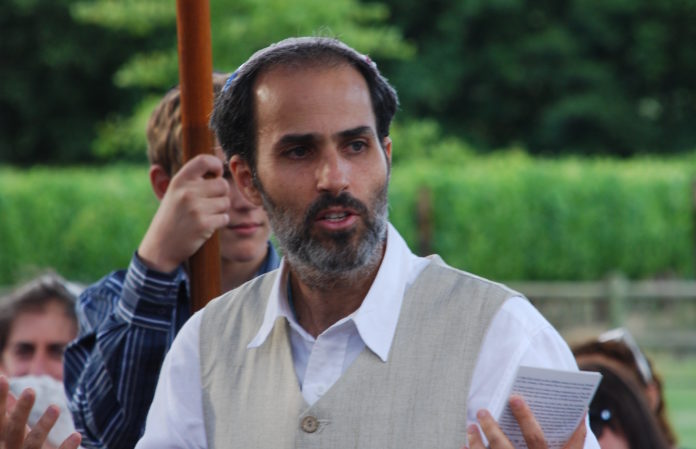As I write this I am moved by the huge number of friends who have chosen to rainbow-fy their Facebook status in celebration of the American Supreme Court ruling on same-sex marriage (on this, South Africa was way ahead, making that decision in 2006).
I know that this is just another step in an ongoing struggle over human rights, and I know that there will be readers of this article who might not celebrate that judgement, but I can see millions of couples now and in the future who will get to mark their marriages in the same way I marked mine and I feel joy that the world is in some way a better place for it. If I look back over my lifetime, I can see brutal wars, oppression, dictatorships and attempted genocides, but I have also been privileged to witness many decisions that have made some of the places on Earth more open, supportive and just.
My wife Andi has been hosting a Jewish feminist tele-conference from Israel and the USA with (virtual) panels of some of the most prominent Jewish feminist leaders in the world today. Impressive women from across the Jewish spectrum from agunah activists, academics and mikvah directors to Orthodox, Conservative and Reform women rabbis shared there grappling with the Jewish world’s issues today from Jewish vision, leadership and scholarship to “Who is a Jew?”, marriage and divorce, gender and sexuality. Why should you and I be interested? You see, the issues that these women are teaching about are (often) the same issues that male leaders have been teaching about for 2000 years. Only it’s different when only 50% of the Jewish world is teaching. And it’s different when those who are implementing policy have an interest in ensuring that policy is fair to all.
You see, in some areas, Jewish women have never had it better. Civil law in most countries that Jews live have given women the right to vote, work and study alongside men. They are, at least in theory, protected from rape, domestic abuse and other violence and, again in theory, regarded as equal in all ways to men. In my movement, women can be rabbis, cantors, leaders of congregations and institutions, and in the past years other denominations, including the Orthodox have followed. One such woman, Dina Brawer, training in the Orthodox Maharat programme, is coming out to Limmud. Women study Talmud in yeshivot and seminaries, they run Jewish congregations and institutions and are thought-leaders, policy-makers and financiers of the Jewish community.
However, in many other ways, women’s lives have not changed. In many shuls, women still can’t vote as members. The problem of aggunot, of women not divorced by their husbands having no way to remarry remains unsolved in the Orthodox world. Many communities are still fighting to develop partnership minyanim, where Orthodox women can participate in the leading of the service. In my movement, women rabbis are still pushing at the glass ceiling that sees senior rabbinic positions still reserved for men. Here in Cape Town, we have seen on the pages of the Cape Jewish Chronicle the battle over kol ishah, the voice of a woman, to be heard again in public community ceremonies such as Yom Hashoah. Many people don’t realise that this is not just about allowing the most extreme interpreters of halachah to shape the way that our whole community marks celebrational and tragic events. It also means that women’s voices and faces and bodies are removed from the public realm, that the Jewish community becomes the silencer of women, and complicit in their repression, that our children are growing up thinking that it is OK for Jewish organisations to say that women should not sing in their rituals, ceremonies, and theatre plays so that “everyone can participate”. In simple monetary terms, it also continues the economic oppression that it is only male chazanim and choirs that can earn a salary for singing in public or leading services.
I see the fight for feminism no differently than the fight to allow same-sex couples to marry, to end Apartheid, to uproot racism and corruption. It is not a fight about Orthodox and Progressive, nor about men and women. It is a fight that concerns everyone, involves everyone and that, if done right, everyone will benefit from. For it is nothing less than the fight for everyone to be recognised as b’tzelem Elohim — made in the image of G*d.











